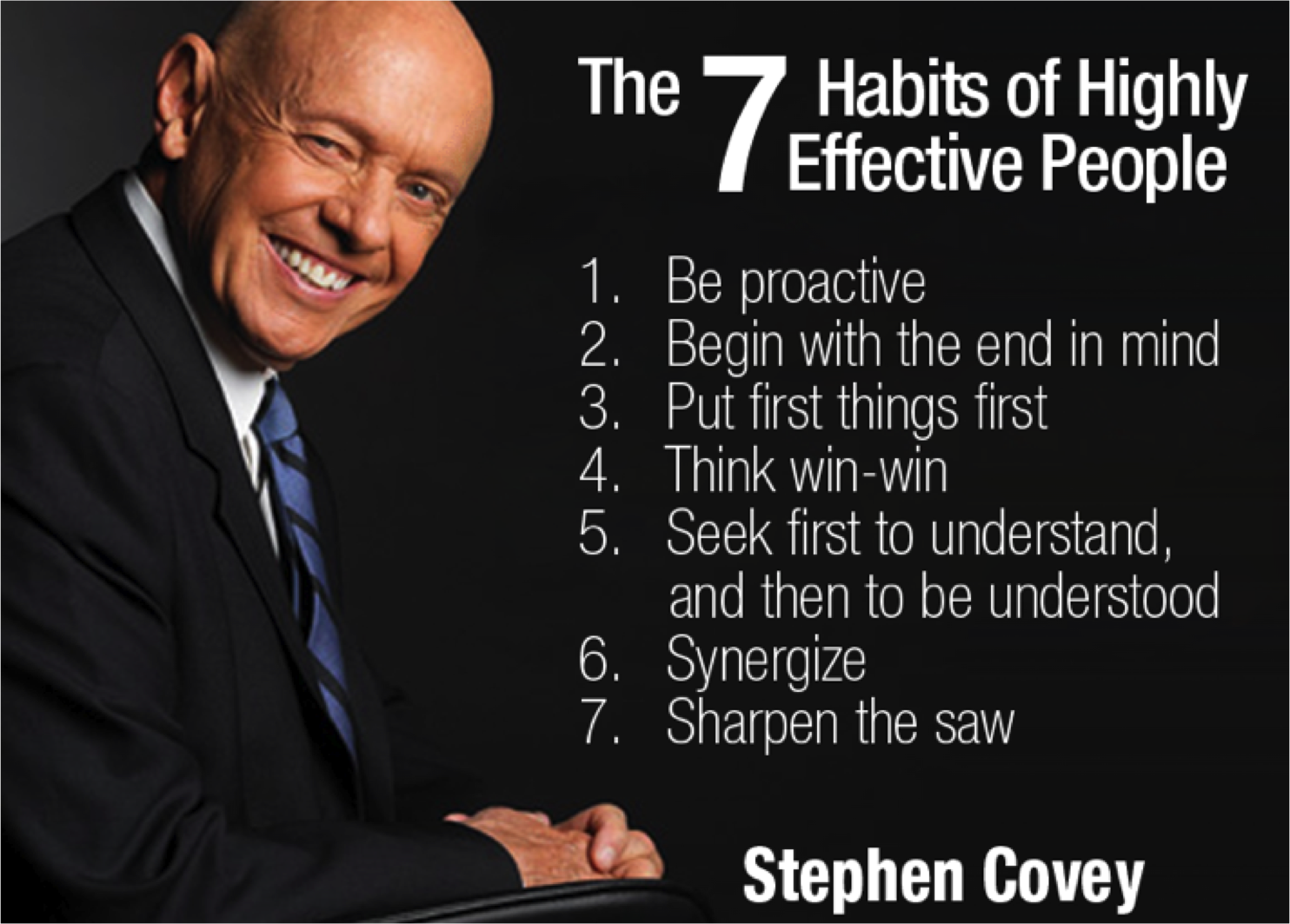
You want a method that is a process, but is a process simple and clear enough to follow without spending undue time thinking about it. Instead of approaching each investment decision as if you’ve never made one before, you want a proven method that works for you. An established disposition of the mind or character.Īs an investor, particularly a time-constrained investor, which most of us are, you should establish a routine. A recurrent, often unconscious pattern of behavior that is acquired through frequent repetition.ī.
#Seven habits of highly effective investors free
Accordingly, here’s the dictionary definition for habit from the Free Dictionary by Farlex:Ī. I have a habit of using dictionary definitions to highlight terms in titles or concepts I want to discuss. If all goes well, 25 Habits will improve your performance while taking less of your time (or at least investing more of it wisely) and making you more comfortable with the whole investing process. It’s really about structuring some of the things you do and have experienced, together with some elements of investing that you probably don’t do and haven’t experienced, into a smart of repeatable exercises that ultimately improve your investing performance. It isn’t necessarily about turning the things you do already into habits, although I’m hopeful that you’ve been doing at least some of these things right already. The 25 Habits of Highly Successful Investors isn’t about kicking bad investing habits. Not a helpful concept for an investing book, right? Habits that are bad for you, annoy others, or some combination of the two. When you think of the word habits, what comes first to mind? For most of us, especially prior to the advent of Stephen Covey’s 1989 blockbuster, The Seven Habits of Highly Effective People, the word habit probably conjured up the notion of bad habits such as smoking, drinking, cracking your knuckles, or tapping on the dinner table with your fingernails. In that spirit, I offer you The 25 Habits of Highly Successful Investors. And you’ll take less time-or spend more productive time-to do it. You’ll feel better and sleep better because you did the right things. With good habits, you’ll be right more of the time (notice I didn’t say all the time). Without good habits, you may find yourself stuck in a pattern of lackluster, inconsistent investing performance. But, especially in today’s world (for most of us, anyway) of other priorities, where we can’t-or don’t want to-spend the day in front of the computer checking and analyzing investments, good investing requires good habits. All of the above are involved in golf and cooking, and I would submit that they’re all involved in investing.

You can argue that good investing is a matter of skill, experience, foresight, time, energy, and a fair dose of luck. Like these other skill-based activities, you approach your investing to (1) achieve or exceed your expectations (2) be consistent and reliable and (3) do it without beating your brains out or spending hours of precious personal time on it.

You want to get to the point where you can do it (1) well (2) with some consistency and (3) without blowing your mind trying to remember what you did the last time.

You would like to keep doing it yourself-mostly yourself, anyway. As in golf or cooking, you would like to improve your investing techniques and intuition. Sheer instinct in any of these situations makes you want to climb back into the saddle. On the third Sunday it’s okay, but the kids aren’t smiling about it anymore.

You do a really awesome puffy pancake one Sunday morning then the next Sunday it does a face plant on the bottom of the pan and you burn it. Isn’t it a little like golf or some other precision sport? You play a really good round one day, really bad the next, and a few good holes in an otherwise pretty dreary round the following week. Up one year, way down the next, then sideways in a third year while the markets marched steadily upward. Maybe you’ve been investing actively for years, but you’re not that happy with your results. Jim Ryun, former world record holder, one mile run INTRODUCTION Investing Can Be Habit Forming


 0 kommentar(er)
0 kommentar(er)
